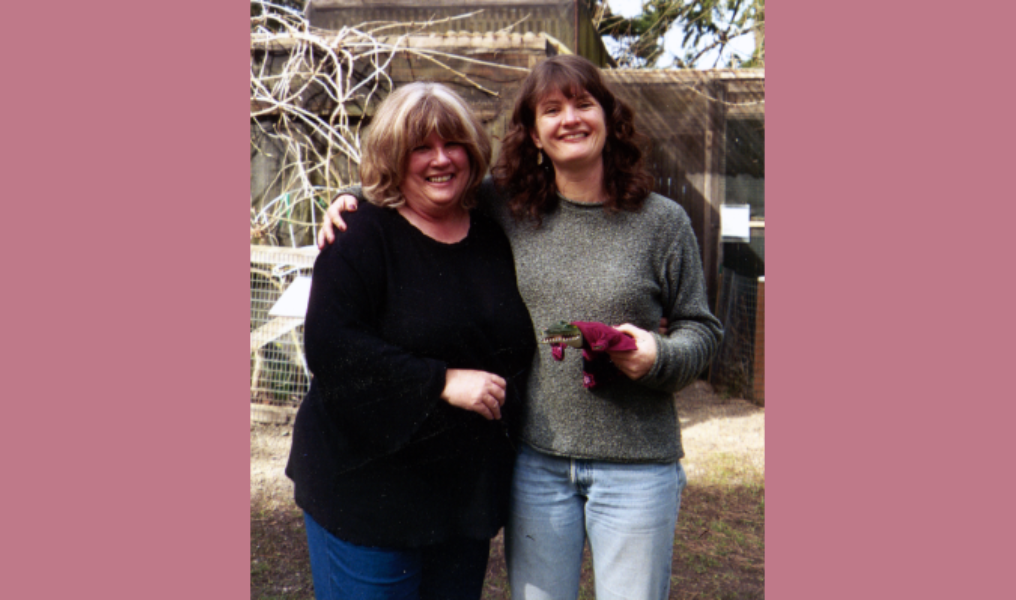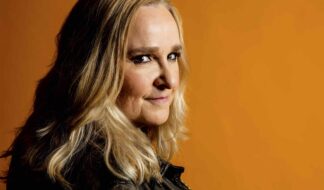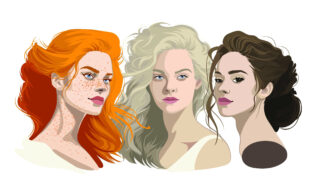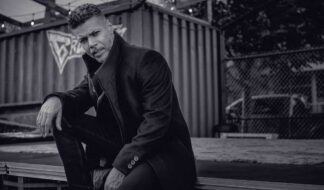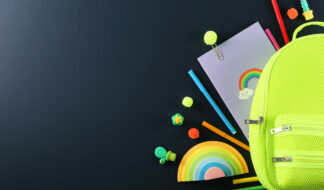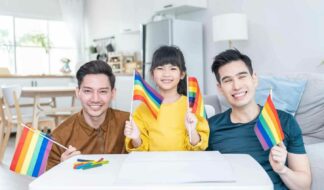There's a scene during the first season of FX's "Pose" in which Blanca, one of the show's trans female protagonists, gets kicked out of a bar with her friend Lulu, who says, "This shit runs downhill past the women, the Blacks, Latins, gays, until it reaches the bottom and lands on our kind."
I'm the daughter of a mom who came out and lost custody of me in 1979, the sister of a man who died of AIDS in 1990, but I watched this scene feeling deeply ashamed of my privilege, and intensely envious of Blanca's community.
"Pose" follows the lives of queer POC characters in New York City during the late 1980s. Teens who come out to their parents find themselves penniless on the streets. They're adopted by mothers — trans women who provide food and housing while struggling to navigate the HIV/AIDS epidemic. Dramatic scenes of hollow-cheeked men dying in hospital beds give way to glamour shots of ball culture in which fabulously dressed performers strut their finery in lavish ballrooms with the hope of snagging a trophy.
I was a teen myself in the late '80s, but I knew nothing of ball culture, nothing of the terrifying disease that ravaged queer urban communities across the country.
All I knew is that a homophobic judge had separated me from my beloved mother when I was 9 years old, and the resulting sorrow and stigma shoved us both so deep into the closet that we couldn't see the lifelines organizations such as PFLAG or COLAGE (Children of Lesbians and Gays Everywhere) might provide. Nor did we involve ourselves in ACT UP, working to help the very demographic that "Pose" illuminates.
How is it possible to live through your own history and only comprehend it 35 years later when you recognize it in a TV show? The answer to that, I think, has something to do with the community of women my bereft mother surrounded herself with — a group of lesbians who wanted nothing to do with men, who enjoyed exuberant, woman-only house parties and stayed as far away from political action as they could. My mother lived in fear that my dad would take away her legal right to see me and my siblings every other weekend. She didn't seek other newly-out mothers and fathers. I knew no other children of gay or lesbian parents; we didn't march in Pride parades or gather at city hall for political demonstrations.
Still, my mother was something of an anomaly in her new circle. She befriended her boss and his boyfriend and brought me with her to help water their plants and feed their cats when they went out of town on weekends. I marveled at their collection of stuffed bears in tiny leather hats and biker jackets, at their elegant suburban home a million miles away from apartments packed with queer folx in the Castro, West Hollywood, the Bronx.
In her own duplex, to counteract my father's bigotry, Mom fired up VHS copies of "Victor/Victoria" and "La Cage aux Folles" every other weekend when my siblings and I visited. From those films, I learned about resilience courtesy of camp and irony. I internalized my mother's outrage over homo- and transphobia on the screen. Still, like so many white, middle-class consumers of mainstream media at that time, we existed in our suburban bubble untouched by the AIDS crisis. That was, until my older brother in New York tested positive for HIV.
John was a decade older than me, the product of my father's first marriage in upstate New York. Across the country from one another, we met maybe four times in our life; still, we bonded over a shared love of novels and art. Now, watching "Pose," I see what he must have lived through — the horror of watching his friends and lovers succumb to this wasting disease; the sickening fear as he sat in a doctor's office and listened to his own diagnosis; his heartbreak in the face of our father's outrage over his "lifestyle."
I was in college when John was diagnosed, busy navigating my own relationships and coming to terms with the repercussions of my family's dysfunctions throughout my childhood. I'm ashamed to admit that I can't remember even calling my older brother as he lay dying in New York; his life, his disease, seemed to have so little to do with mine as I studied and partied in my dorm room surrounded by other straight, white cisgendered freshmen like myself.
My college lay 70 miles south of San Francisco, but we didn't caravan up to demand health care for marginalized communities, or volunteer in hospice houses, or applaud on the sidelines of Gay Pride parades. Even when my father called to tell me that my brother had died of AIDS-related complications, I didn't understand that this was my battle to fight on John's behalf, and on my mother's behalf, as well. She wasn't political, and so I didn't learn about the power and solidarity of activism until much later in life.
What she was, however, was empathic. As my siblings and I grew up and she became less fearful of legal repercussions from our father, she welcomed all kinds of people into her life. And they welcomed her in return.
I felt this keenly when we drank JB sodas at a gay bar in Portland before heading to the drag show at Darcelle XV. She and the performers shared an easy camaraderie that eluded me then, and again when we went to the San Francisco Writers' Conference years later and found the hotel half-filled with authors and half-filled with queer performers in town for a "Pose"-inspired competition.
Mom and I took a wrong turn in the hotel one night and walked into a deafening ballroom scene instead of the staid public reading we'd planned to attend. "Let's stay," she said, and I agreed, though I felt like an imposter — even more so when the women around us embraced her, admiring her highlights and her all-black authorial ensemble while ignoring me completely.
"It's like they have gaydar," I grumbled. But what they really had was a shared history of oppression and lives touched by insidious disease. As my mother grew more comfortable in her identity, eventually marrying her longtime girlfriend, she began to realize just how privileged her life had been in comparison to those lived by gay and trans friends. Maybe this is why — when she discovered "Pose" while in hospice care two years ago — she insisted I watch it as well.
I waited two years to take her advice, overcome with grief at her passing and wondering what the hell a drama about Latinx and Black transsexuals in the 1980s had to do with me. But I get it now.
I got it from the first episode. "Pose" has showed me where I belonged in that era, and where I belong now as the daughter of a lesbian, the sister of a gay man, the mother of a queer Black biracial teen. It's shown me, too, how profoundly ignorant I was of the world around me as a young person and how that ignorance stemmed from fear and sorrow and trauma and isolation.
The show recently aired its final episode, and so I have no one to talk with about the first season. But maybe that's just as well. The experience of watching these characters' struggles has been intimate and heartbreaking and humiliating. I understand better now the horrific final year of my brother's life, my father's outrage goaded by terror, my mother's fear of political activism, my high school boyfriend's suicidal shame in revealing a desire for gender confirmation surgery.
Most importantly, I understand now how better to be an ally. "Black trans lives matter" is not someone else's battle to fight; it's mine. It matters not at all that I'm straight, that I identify with the gender assigned at my birth, that my ancestors are white, that I can't in this lifetime pull off haute couture. I have an obligation to help stop the flow of shit running downhill.
My mother learned this over seven complicated decades before she died. Maybe her insistence that I watch "Pose" was her way of continuing, post-mortem, my education — and my daughter's education — in compassion and activism. White silence kills.
"Pose" demonstrates this, inspires us to do better. The character Lulu may despair at the lowly position of trans women in the social hierarchy of the 1980s, but she ends her monologue to Blanca with these words: "How lucky are we? We create ourselves."
I'm a White Cisgendered Straight Woman. 'Pose' Gave Me My History.
